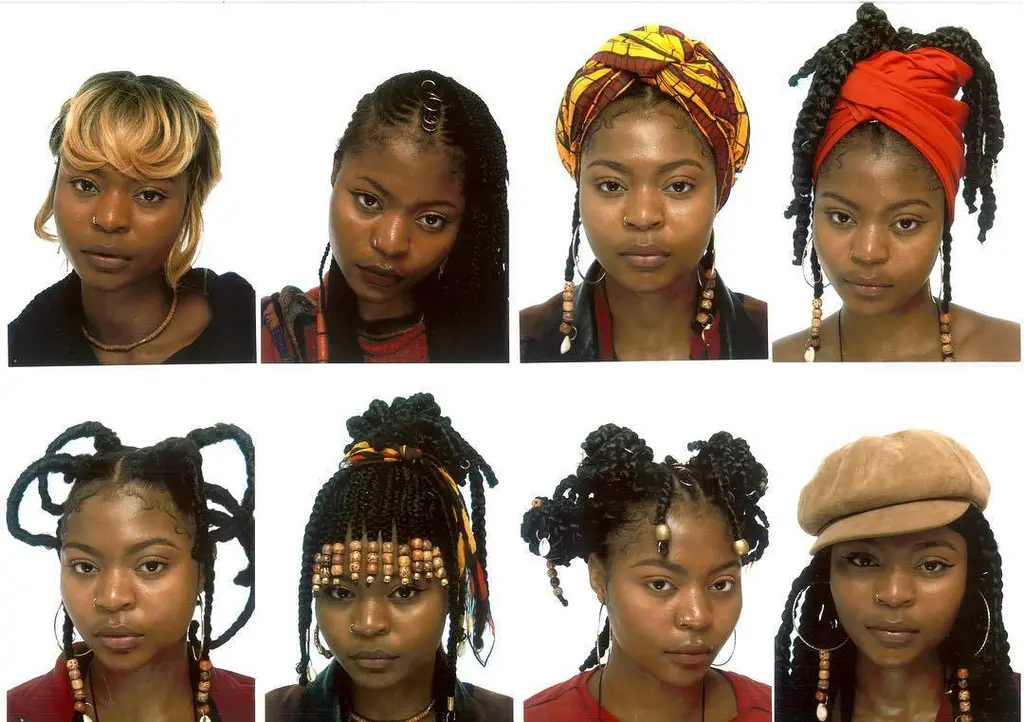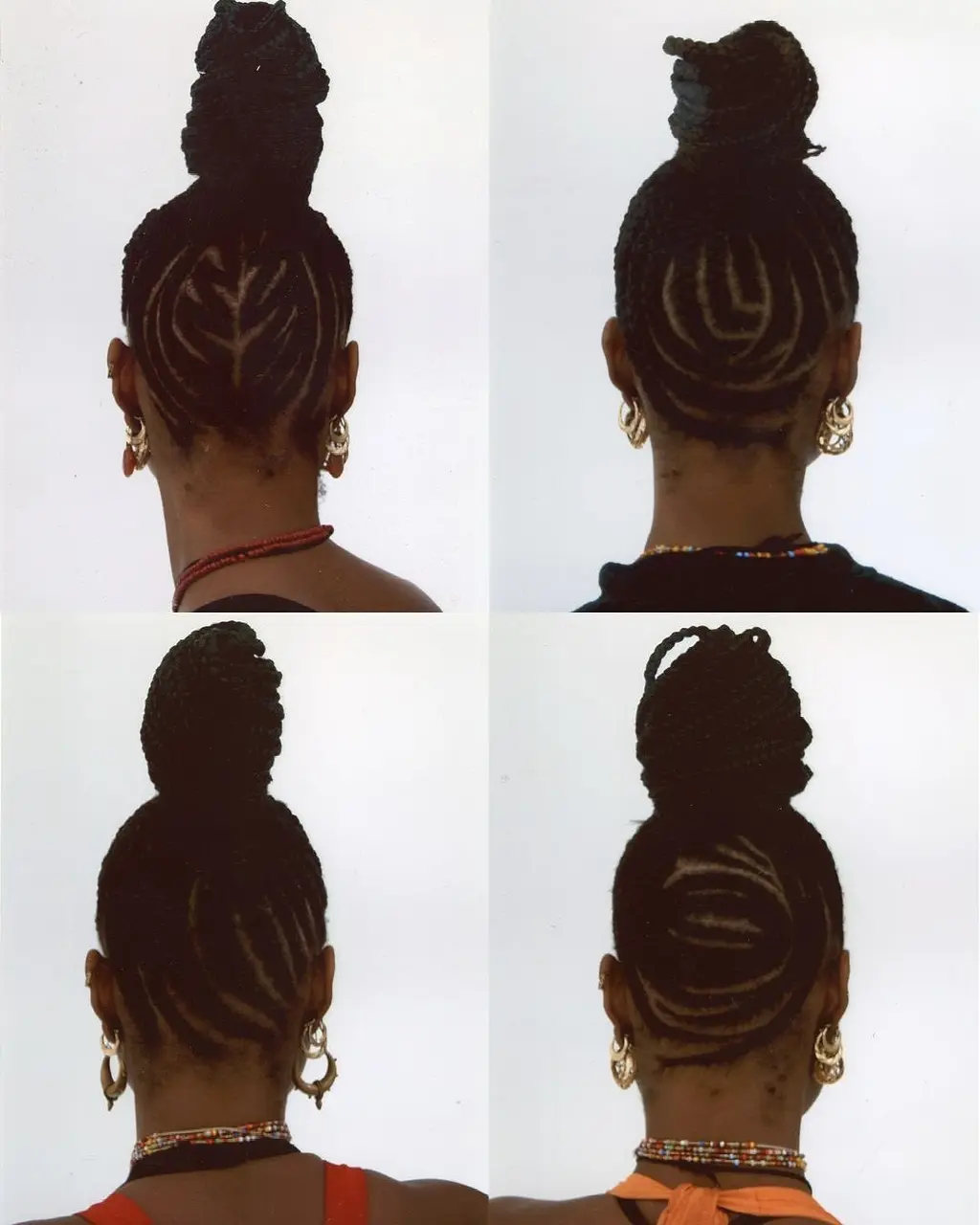Favour Jonathan never wants Black women to question their hair

The multidisciplinary artist's long-running project, A Statement of Pride, is a striking, nostalgic homage to the reclamation of Black hair and identity.
Beauty
Words: Eni Subair
Eight years ago, multidisciplinary artist Favour Jonathan was told that her natural Afro hair resembled the texture of pubic hair. “It was a random girl. She came up behind me and started touching my hair,” Favour says, dialling in from her studio in Peckham, South East London. “Why is it that Black women’s bodies are something the whole world feels entitled to?”
Nearly a decade later, this is an encounter that still lingers in the sculptor’s mind. Sadly, it’s far from an isolated experience. Black women can likely recount numerous instances of similar encounters, in a society that routinely demonises and dismisses Black hairstyles. The emotional toll can be exhausting.


And so Favour, a multifaceted artist who usually explores themes tied to 19th century Nigeria and Black British culture, decided to harness all of the above and make it into its own project: A Statement of Pride. This is a visual documentation of the various self-styled hairdo’s she’s worn over the years. The result is a photo series, with hundreds of polaroids of braided hair creations, inspired by the likes of The Velvet Rope-era Janet Jackson, photographer J.D. Ojerikeke’s stills of Black women’s hair and early ’90s Snoop Dogg. “I started documenting my hair [journey] because Black women’s hair is a statement of pride. It’s something that makes us happy. It’s who we are,” she says firmly. “I do it because art, to me, is something sacred. It’s something I do because it makes me feel good, and it keeps me sane.”
This year marks the eighth year of A Statement of Pride, which she posted about on TikTok last month. Favour shared a video which flicks through an amalgam of the hairstyles she’s executed over that time – Bantu knots, straight backs, faux locs – illustrating the innovation and resilience that’s been poured into the near-enough 300 hairstyles she’s created from scratch.
“I started documenting my hair [journey] because Black women’s hair is a statement of pride. It’s something that makes us happy. It’s who we are”
“You’re all over my Pinterest board” and “your pictures are iconic” were just a few of the comments left under the video. With 23k views and counting, it wasn’t something Favour expected to draw such attention. “I’m just minding my business doing [this project], and then all these Black creators comment and tell me they need my pictures in a book or that there needs to be an exhibition quickly,” she says, reeling off the compliments with an air of disbelief. “It’s lovely getting DMs from girls as young as eight years old.”
Favour’s method isn’t convoluted: on her way to uni, she’ll “pop into a photo booth in Clapham or London Bridge, take a picture, and then carry on my journey”. How does she decide which hairstyle she’ll wear next? “I [ask myself], do I want an alter ego this week? Do I want to channel Queen Latifah? Or do I want a long ass weave to make me feel like Beyoncé?”

Hair has always felt like a comfort blanket for Favour. Heading to the salon to have your hair manipulated into braids or cornrows is a rite of passage for many young Black girls. For Favour, who grew up in Benin, Nigeria, then moved to London and was placed in foster care before she reached her teens, her hair was particularly sacred. “I grew up in various places and I got to a point where I didn’t like people touching me,” she says. Her self-taught approach is something that has slowly allowed her to develop a healthier routine with salons. “I’ve always braided my hair, and now, once a year on my birthday, I’ll go and get my hair done. Shuku is my go-to style.”
Thanks to A Statement of Pride, Favour’s dreams of putting on an exhibition and (hopefully) publishing a book – “I want to create something for Black women to look at” – will come to fruition the year of the project’s 10th anniversary. For now, Favour has started a male equivalent of her project, using a friend as her muse. “The mandem are really out there doing amazing cornrows and bantu knots! I’m looking for more men [for the series].” Reach out if that sounds like you, and hold tight for 2027…



